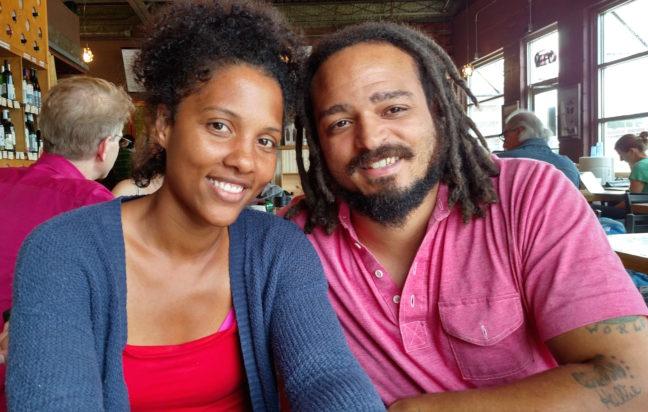“Walk a Mile in Their Shoes” is a documentary that follows five individuals facing different types of social oppression and provides a platform for them to tell their stories.
Johnny and Marie Justice, the duo behind Justice Media and the curators of the documentary, explain that Justice Media focuses on the understanding of others’ lives — hence, the name of the documentary. Justice Media is actively involved in the Madison community, and hope the documentary will spark a dialogue about bias and possible actions to take.
When asked about the mission of Justice Media, Johnny and Marie Justice said that they are focused on exposing people to other individuals’ true stories and experiences, as this allows a more in-depth comprehension of complex situations like the ones depicted in the film, and fosters empathy.
“We think it’s just important to tell stories and humanize people,” Johnny said. “All too often, we use words like ‘politics’ and we don’t get the human element of things. Our mission and our purpose is to make sure that we make real stories with real people.”
The film also allows people to give an account of their authentic stories. People everywhere are making important impacts in the world, and the couple aims to tell these important stories to the public.
To produce the documentary, Justice Media collaborated with Intentionally Welcoming Communities, a group that aims to be inclusive and understanding, as their name suggests. After getting involved with the Madison community and a chance meeting with the organization, Justice Media was inspired by Intentionally Welcoming Communities’ efforts. Marie and Johnny Justice contemplated the question of ‘what does it mean to intentionally welcome someone?’ This question prompted them forward with the documentary.
Marie Justice explained that putting a face to specific stories is helpful in helping others understand it. Johnny added that there’s always two sides of things: Opinion and true perspective. While opinions are unsubstantiated claims, true perspective is facts that can challenge opinions and stereotypes.
Justice Media found the individuals they included in their film within the community by conversing with acquaintances about their interest in being intentionally welcoming and actively working to diversify their network and those they interact with. Johnny and Marie believe while the types of challenges each person in the film faced are unique, the nature of oppression means there are shared challenges that enable people to understand one another. However, they emphasized the hopes and goals that people have are universal and even more evident than the challenges.
“At the end of the day, people have basic needs that they deserve,” Marie said. “They deserve happiness, love, acceptance – and that was very common, not just the oppression. They were human beings; we all want love, acceptance and to belong.”
Justice Media is interested in understanding others’ views, and helping the community do the same. They hope that upon viewing the film, people will broaden their worldview and develop greater compassion.
With the documentary, they hope people will take action to dissolve social barriers.
“It gets people thinking, ‘How can I get involved?’” Marie said. “Everybody is working together and putting in their effort or putting in their time.”
As opposed to wasting time watching TV, people can be active and help to end homelessness, if that problem is important to you, Johnny said. Or, people can help the transgender community, end mass incarceration or help undocumented immigrants, he said. There is always actions to be taken that can benefit the community.
So far, the film has worked well to create a discussion about the issues of stereotypes and struggle, which is one of the first steps to minimizing them. The Justices educate the community on these stereotypes at a class they teach at Edgewood College. They show the film to students, and afterward have a discussion.
“The conversation dialogue afterward surrounding the film is about how much it got them thinking — how it changed perspectives and emotions,” Marie said. “On [Sept. 27] when we show it at the Barrymore, it’s free and open to the public. We want people to be there.”
Justice Media believes in order for our society to start to fix issues and eliminate stereotypes, people need to identify the stereotypes that they have toward other people.
By noticing and questioning these beliefs, and then interacting with individuals from the groups one is stereotyping, the reality of the situation will emerge.
“If you went to the doctor and were diagnosed with cancer, that wouldn’t be the end-all, be-all,” Johnny said. “You would go to a different doctor; same thing with the infection of bias: you have to question it. Confront that bias and the stereotypes, and seek information from individuals and learn from them. Immerse yourself, somehow someway, into the culture or group you’re stereotyping.”


